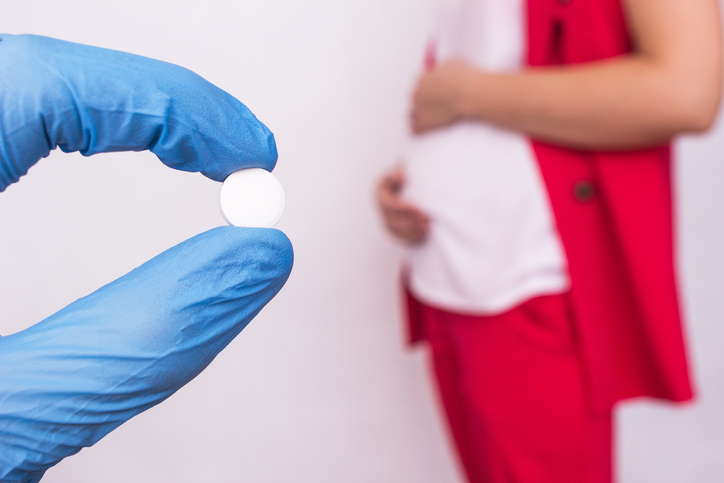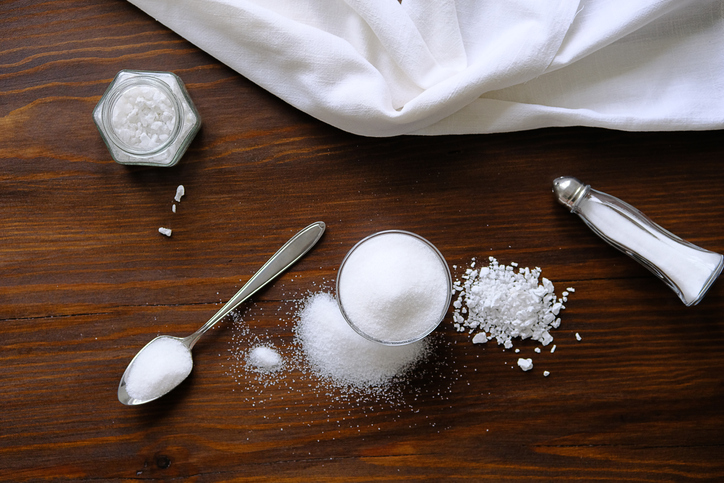Why Iodine Needs To Be On Your Radar If You Are Pregnant or Planning to Be

By Joy Stephenson-Laws, J.D., Founder
One piece of advice I can give to aspiring mothers and mothers-to-be is to really focus on prenatal nutrition. Even before your baby is conceived, it is important to make sure you are getting an adequate and balanced amount of all the essential nutrients such as vitamins and minerals.
“A woman who is healthy at the time of conception is more likely to have a successful pregnancy and a healthy child,” according to one report published by the National Institutes of Health (NIH).
In my opinion, having optimal health is not just about having a healthy weight or body composition). Although these factors are key to our overall health and well-being, being nutritionally balanced is also important.
And the reality is that the many of us have nutritional imbalances and deficiencies. Nutrtional imbalances or deficiencies are common in people who eat too much processed foods and drink a lot of alcohol.
One might think that someone who is vegan, vegetarian or mainly plant-based would not have any issues with nutrition. Diets such as these are widely considered healthy and applauded because they usually involve eating a wide variety of fruits and vegetables (which are very nutrient-dense). However, because these diets tend to eliminate or greatly reduce whole food groups such as meat, eggs and dairy, nutritional deficiencies are actually more common among this group.

Pregnant women or women who are planning to become pregnant and are plant-based need to be especially mindful. A very well-known nutrient needed in pregnancy is folate (also called vitamin B9). On the other hand, another nutrient that is extremely important in pregnancy that is not quite as popular is iodine.
Iodine is an essential mineral. Your thyroid gland actually needs iodine to produce thyroid hormones.
“During fetal development, infancy, and childhood, thyroid hormone is essential for the brain and nervous system to develop normally. Too little iodine, and thus too little thyroid hormone, can lead to mental retardation, dwarfism, hearing loss, and other problems,” reports Harvard Medical School.
Food sources of iodine include fortified bread, iodized salt, eggs and dairy foods. It is also true that plant foods such as sea moss and kelp are excellent sources of iodine, however a recent study conducted by the University of South Australia (UniSA) comparing vegan/plant-based women to omnivore (meaning to eat both plant and animal foods) women found evidence which showed that the plant-based women had significantly lower levels of iodine in their urine.
And what is particularly concerning is that “[u]rine samples showed iodine readings of 44 ug/L in the plant-based group, compared to the meat eaters' 64 ug/L level. Neither group came close to the World Health Organization's recommended 100 grams per liter, “ according to one report discussing the study.
“Participants from both groups who chose pink or Himalayan salt instead of iodised salt had severely deficient iodine levels, averaging 23 ug/L.”
The type of salt to consume is somewhat of a controversial topic. This is especially true when it comes to discussing the American diet, because so many Americans have hypertension. For example, a person with hypertension and low iodine levels will probably not be advised to consume more iodized salt even though this type of salt may be a good source of iodine. Instead, he or she will probably be instructed to have a higher intake of certain foods that contain iodine.
"Mild to moderate iodine deficiency has been shown to affect language development, memory and mental processing speeds," said Jane Whitbread, a UniSA research dietitian referenced in the report.
"During pregnancy, the need for iodine is increased and a 150mcg supplement is recommended prior to conception and throughout pregnancy. Unfortunately, most women do not take iodine supplements before conceiving. It is important to consume adequate iodine, especially during the reproductive years."
If you eat a plant-based diet and hoping to have a healthy baby, you can see that your iodine food sources are pretty limited. Sea moss and kelp are generally not consumed regularly. And even if you do eat meat and dairy products, there is some evidence that you still may very well have low iodine levels (especially low for supporting the healthiest pregnancy possible).
You can be proactive.
I cannot stress enough the importance of routine nutrient testing. If the test reveals that you are low in iodine or any other essential vitamin or mineral, your doctor can work with you on making the necessary dietary changes and recommend quality supplements if necessary. As always, it is very important to talk to your doctor before taking any supplements or making drastic diet changes while pregnant.
For more information on how to have the healthiest pregnancy possible (this includes information on what males can do), check out these pH Labs blogs.
Enjoy your healthy life!
Disclaimer: This article is not intended to provide medical advice. Please consult with your doctor or another competent healthcare practitioner to get specific medical advice for your situation.
The pH professional health care team includes recognized experts from a variety of health care and related disciplines, including physicians, attorneys, nutritionists, nurses and certified fitness instructors. This team also includes the members of the pH Medical Advisory Board, which constantly monitors all pH programs, products and services. To learn more about the pH Medical Advisory Board, click here.







